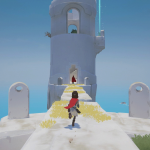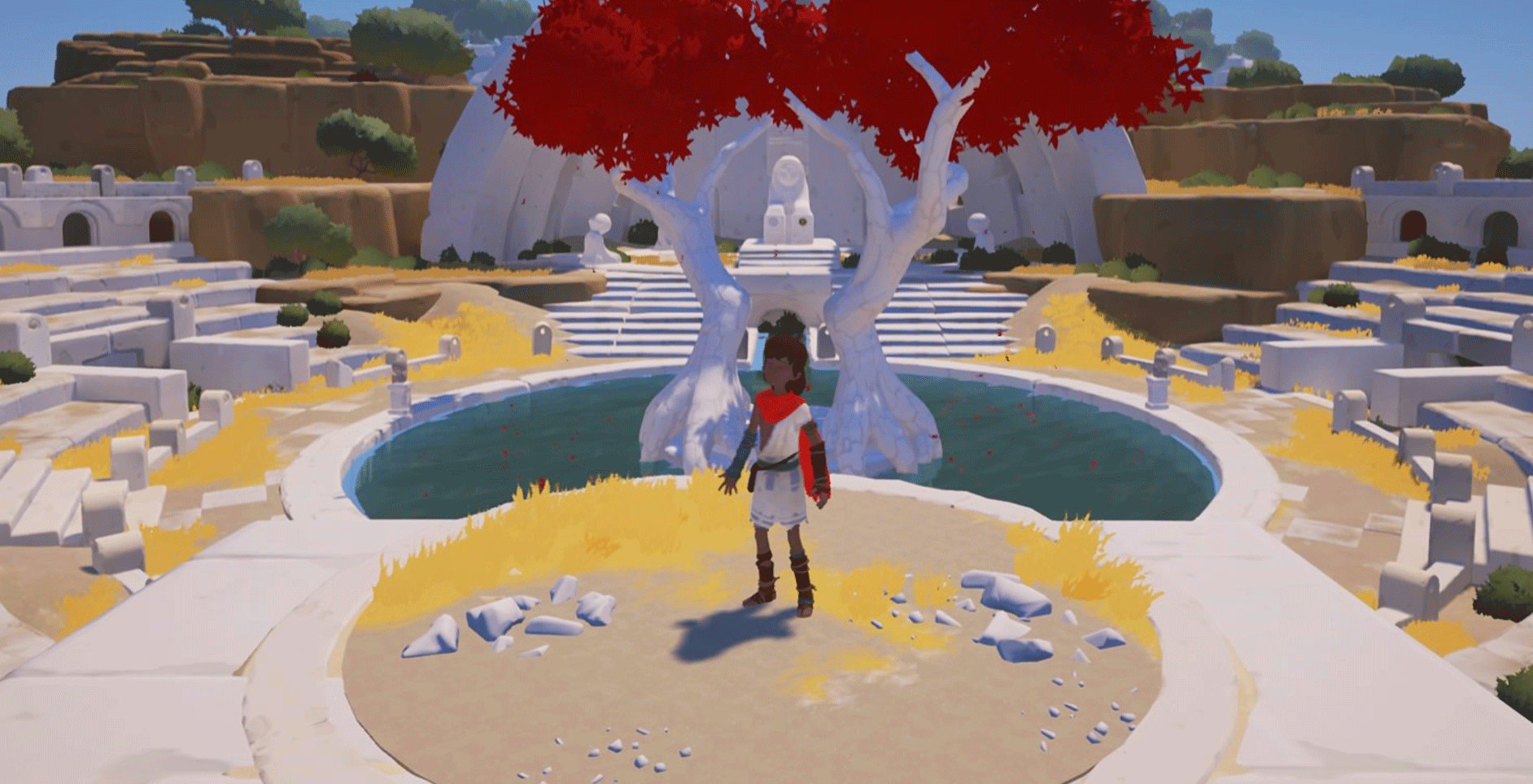It was a bold strategy of Tequila Works to reacquire the rights to Rime from Sony after their funding had made it a PlayStation exclusive. It’s one which should pay dividends and serve gamers as a whole because Rime is absolutely a darling title which deserves to be played by all, rather than just many. It’s clear from the get go Rime finds inspiration in titles like Journey and the Team Ico odysseys, though it does so while establishing its own distinct and charming identity.
Rime tells the story of a young boy named Enu, and his need to escape an island which he finds himself on, for reasons unknown. On the surface that’s all there is to the game, and it’s not until the final act that something clicks and the game’s meaning becomes clearer. Going into any more detail would be doing Rime a disservice, but this is a smart, beautifully designed game which is drenched in symbolism and manages to explore some fairly heavy themes. I don’t particularly have a good radar for subtext, so when the penny dropped and the credits began to roll, I immediately delved back in to discover all the intricacies I was oblivious to the first time around.

Without a heads-up display and with only a few brief on-screen prompts to teach the very limited control scheme, the player must rely on everything they’ve learned about games to this point. Tequila Works plays on these expectations expertly, crafting an intuitive title which makes the exploration seem natural. Without the need for a crude waypoint, they guide us through their world in other ways which fit into Rime’s overarching lore.
During your time in Rime, you’ll go through all of the usual staples in a third-person puzzle game. Carrying and dragging items, mantling and shimmying along precarious ledges will all soon enough seem like second nature, but your greatest tool is your voice. It’s entirely contextual and often integral to the game’s puzzles, so depending on the situation you might need let out a mighty yell, a sombre whimper or even hum along to the game’s heart-fluttering score.
It’s an all round solid experience, though I was sometimes frustrated by the game’s inconsistent mantling. There’s nothing more enraging than having to walk the long way around a two-inch step because Enu can’t climb it. What happened to the good old Skyrim days of jump-climbing up impossible gradients?

While Rime starts out feeling very much like an open-world title, it soon becomes clear it is rather linear the further you progress. However, this doesn’t feel like a betrayal of the game’s earlier promises of a grandiose open experience. Rather, it feels natural, especially in retrospect with the narrative forces at work becoming more oppressive.
The game’s set over the course of five distinct chapters and, all in all, Rime took me in the ballpark of eight hours to beat the first time around. Whether this is average I’m not sure, as I didn’t soak in heaps of the world but I also got hung up on a couple of the puzzles due to my inattentive eye. If you were to drink up all that Rime offers in a single run, I’d say you’d be in for at least 10-12 hours.
Rime’s use of visual language amid the lack of proper vocal direction is so wonderfully crafted. It doesn’t take long to recognise that within Rime’s Mediterranean island world, colours mean everything. Enu’s voice is key to activating jade-coloured items, gold items are those waiting to be picked up and red is reserved for story-relevant items. Exploration is even made easier thanks to Tequila Works adding a stylish white trimming onto the ledges you’re actually able to climb, so plaudits are in order for some intelligent design here.

It’s impossible not to be taken aback by Rime’s stunning world. Beginning on a lush, beautiful island which is home to plenty of green, you soon progress into a mysterious, ominous tower which stands tall above all else. Beyond its doors you’ll encounter many areas, each as eye-grabbing as the last. There are a number of tonal shifts throughout Rime’s five discreet stages and this variety is validated once the story’s ambiguity is lifted. Rime has been mentioned alongside The Wind Waker as far as art direction goes, and it’s pretty easy to see why.
In terms of performance, Rime encounters occasional frame-rate drops and screen tearing on PlayStation. That said, these issues arise so infrequently they hardly impact Rime’s seamless nature.
With little to no voice work present in Rime (besides Enu’s shouts and hums), David Garcia’s score is relied upon heavily to assist the game’s world. Garcia’s score is often haunting, sweeping and nearly boundless in terms of heart. I don’t even own a record player, but I still have a strange urge to own this score on vinyl. It refuses to just work away in the background, emerging to the fore in ways a lot of composers can’t or don’t dare to.



